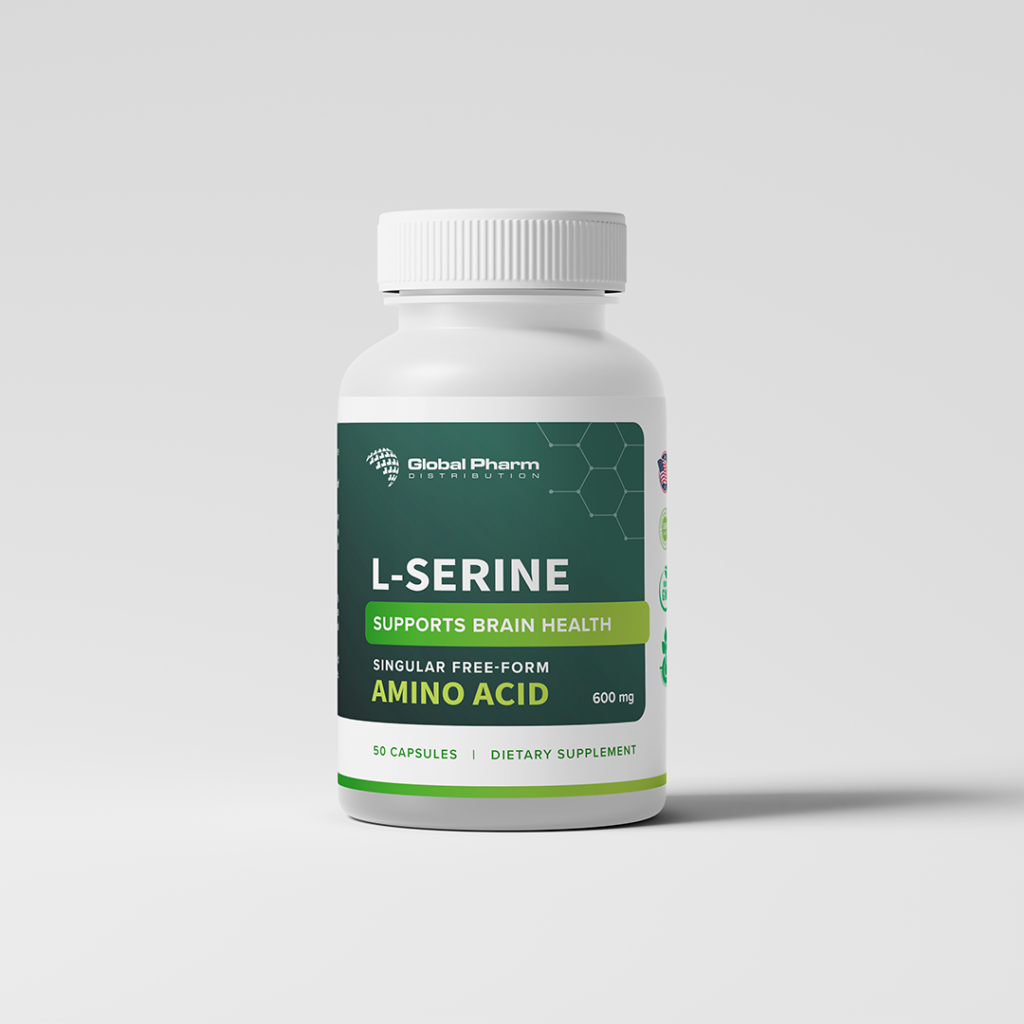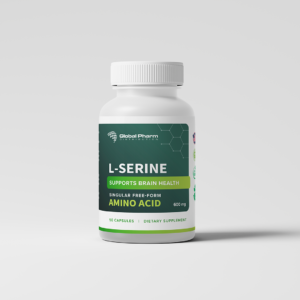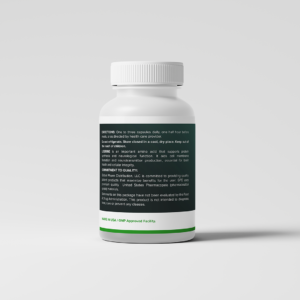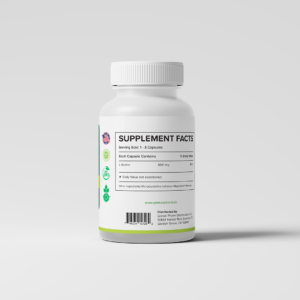Description
NDC: 53335-089-11 (capsule), 53335-088-29 (powder)
Weight: 4 Oz
L-Serine is a non-essential amino acid essential for various physiological processes, serving as a building block for protein synthesis and a precursor to neurotransmitters like D-serine, which supports brain health and cognitive function. It plays a key role in the synthesis of phospholipids, such as phosphatidylserine, vital for cell membrane integrity, and contributes to the production of cysteine, glycine, and other metabolites. L-Serine also aids in metabolic regulation, including one-carbon metabolism, and may support mood stability and neurological development. Research highlights its importance in brain function and neuroprotection (e.g., de Koning et al. 2003).
L-Serine is particularly beneficial for individuals seeking to enhance cognitive performance, support neurological health, or maintain metabolic balance under stress. Manufactured using premium pharmaceutical-grade materials in a GMP-approved facility in the USA, L-Serine is free of fillers, binders, or coloring agents, with no known side effects when used as directed.
Directions: Take 1-3 capsules daily or as advised by your healthcare provider. Pair with vitamins and minerals; GPD’s MVM (Multivitamin) is recommended. Powder equivalent: 1/4 level teaspoon per capsule.
Key Benefits
- Supports Brain Health: Precursor to neurotransmitters and phospholipids.
- Promotes Protein Synthesis: Essential for tissue building.
- Enhances Metabolic Function: Aids one-carbon metabolism.
References
- de Koning TJ, et al. (2003). “Serine deficiency disorders: A new perspective on the role of serine metabolism.” Amino Acids, NIH.
- Furuya S. (2008). “Roles of L-serine and sphingolipid synthesis in the central nervous system.” Biochimica et Biophysica Acta (BBA) – Molecular and Cell Biology of Lipids, NIH.
- Snell K. (1984). “Enzymes of serine metabolism in normal and neoplastic tissues.” Advances in Enzyme Regulation, NIH.
- Baumgartner MR, et al. (2014). “Serine biosynthesis and its therapeutic implications.” Molecular Genetics and Metabolism, NIH.
These statements have not been evaluated by the Food and Drug Administration. This product is not intended to diagnose, treat, cure, or prevent any disease. Consult a doctor or medical professional before use, especially if you have underlying health conditions or are taking other medications.
Additional Information The following points provide insight into L-Serine’s plasma levels and their association with various health conditions, reflecting its role in metabolism:
- Normal Range: 80-200 µmol/L (approximate clinical range).
- Conditions Associated with Low Levels:
- Serine deficiency disorders (e.g., 3-phosphoglycerate dehydrogenase deficiency)
- Malnutrition or protein deficiency (reduced serine intake)
- Neurological conditions (e.g., epilepsy, affecting D-serine levels)
- Conditions Associated with High Levels:
- Excessive supplementation (from overdosage or dietary excess)
- Liver dysfunction (impaired serine metabolism)
- Certain metabolic disorders (e.g., hyperglycinemia, secondary effects)
- Notes: L-Serine is a non-essential amino acid critical for protein synthesis, brain health via neurotransmitter and phospholipid production, and one-carbon metabolism. It supports cognitive function and mood stability, with potential benefits in neurological development. Low levels may indicate genetic or nutritional deficits, while high levels can result from supplementation or metabolic imbalances. These associations are correlative and require further research for causal confirmation. For more technical information, please click here. Consult a doctor or medical professional before use, especially if you have underlying health conditions or are taking other medications.
 Global Pharm Distribution, LLC
Global Pharm Distribution, LLC




